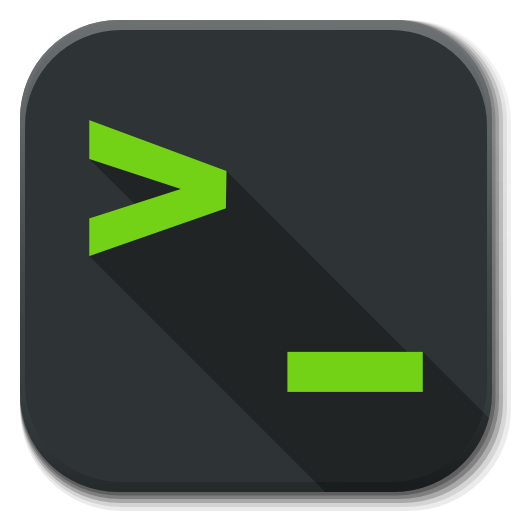I have no experience with Linux, but I’d like to give it a try. I’m looking at the System76 Meerkat and Thelio with the Pop!_OS option.
I don’t see myself gaming on it because I have a Windows machine for just that. I’d mostly be using it for learning Linux and doing basic things like web surfing and word processing (Libreoffice perhaps).
Any recommendations or advice? Thanks!
We have a 30 day return policy, so if you don’t like the Linux experience, you can return it for a refund. Customers have access to free customer support that can help with any issues you encounter. This is also an official community, so I may answer questions asked about Pop!_OS here.
Yes, I started off with Pop! As my first distro back when I started to use Linux. TBH you can’t really go wrong with Pop! Or Mint as your first choice.
I put Pop!_OS on a laptop for my (elderly) mum and she used it for years, never had any issues, every now and then I’d tell it to update to the new version and everything was just fine. In the same time period I would have had to fix a windows install several times.
You don’t need to buy a new computer just to learn Linux. You can create a bootable flash drive and install it on an external SSD and boot from the SSD when you need to use Linux. If you don’t want an external SSD, you can dual-boot and keep Linux on a separate partition on your machine.
In terms of distros, I’d recommend Ubuntu or Pop!_OS to get started with. Other distros like Elementary OS, Linux Mint, or Debian can be suitable as well.
I found Pop! quite good for gaming, since it has a fairly recent kernel and the drivers built in. (Not as good as Arch, which I’m using now - it has cutting-edge everything and great documentation, but is not for newbies - some of its derivatives sand off the rough installation edges.) I do find the Gnome3 interface infuriating, but speaking as a Linux dev at a Linux company, there’s loads of my colleagues that have no problems with it, so YMMV.
Before shelling out on a laptop, I’d get yourself a Virtual Machine setup on Windows (VirtualBox works for me) and try out a few Linux instances. Dead easy to set them up, test various distros, and throw them away again, and if you foul it up, then no harm is done. Installation and setup will teach you a lot. Completely free, as well.
Documentation - the Debian adminstrator’s handbook is available free online, and the Arch documentation is extremely comprehensive and up-to-date.
And good luck!
I’ve used a few different flavors of Linux, and I now use a System76 with Pop OS for work, and I’m quite happy with it. I don’t feel any need to change to anything else.
I think Pop OS Is the right distro to start and to stay for a long time
I also tend to use Windows for gaming just because I’m too lazy to worry about potential compatibility issues, but depending on your machine you might find it useful to get some extra performance out of your games. Back when I played competitive TF2 on a junky old desktop I got way more consistent framerates with Ubuntu. (Wouldn’t recommend stock Ubuntu these days, it’s very bloated)
And supposedly, gaming on Linux is getting better all the time, especially since Valve released Proton and SteamOS. Like I said, too lazy to try it myself, but I’ve only heard good things. Maybe once they finally discontinue Win10.
Thank you everyone for their input! I’m impressed by how thoughtful you all are here on Lemmy. I will read up on the links some of you provided and I’ll give a shot at trying Pop!_OS on a VM on my windows machine. If all goes well, I’m still leaning on either a Meerkat or Thelio since I know they will work out of the box. Again, thanks everyone!
Yeah, just do it, it’s the best place to get a full experience from vendor support to a polished OS with help videos on YouTube to teach you how to do things like tiling. Nobody else comes close.
deleted by creator
I got a Thelio and loved it–despite being incredibly powerful, it is so quiet that I can’t tell whether it is even on or not unless I am near it and listening closely. This is only true when running Pop!_OS, though; in Windows or other Linux distributions it’s a lot noisier, presumably because Pop!_OS has carefully calibrated their kernel to make this work.
However, even on non-System76 hardware I’ve been using Pop!_OS as my It Just Works Linux distribution, and have generally had success with it, including for most of my gaming needs. There have been a couple of times where an upgrade borked things so that the system no longer booted, which is definitely not a good thing, but fortunately one of the installation options is “Refresh” which replaces all system files while leaving everything else in place so I’ve gone from unable to boot to back and running within 30 minutes, which is a big deal because I’ve had other Linux distributions spontaneously bork things before but I’ve never had it be so easy to recover when this happens. I did have to reinstall some system software packages, but the largest things on my hard drive are my games and those didn’t have to be reinstalled because they live in my home directory so it wasn’t a big deal.
On the flip side, just so you don’t think I’m a System76 fanboy, I tried their Oryx Pro laptop, despite it being incredibly expensive, because I love my desktop and was expecting a similar level of experience, and it was terrible; sleep mode was buggy because it only ever worked when I first plugged in the laptop and then unplugged it, which makes the feature pretty useless when you’re on the go, which is exactly when you need a working sleep mode, and even then it only used a partial sleep mode so it would consume 10% of the battery per hour. I tried contacting support about this and got really bizarre responses about things that were completely unrelated to my questions, as if they weren’t actually reading my tickets. The whole situation was so bad that within about a week or two I just sent it back. A little while later bought a laptop at less than half the price which runs Pop!_OS just fine and more than meets my needs so in a way I’m glad that the more expensive laptop didn’t work out.
The fan curves are defined by the fan daemon within the system76-power daemon. This source code in particular. You can install this on any Linux distribution.
Sorry to hear about the bad experience with support. I wonder when this was. I usually see comments praising the level of support that they received.
The issue with the Oryx Pro laptop may have been firmware-related, and fixed by a firmware update from the Firmware Manager application. Although QA performs a lot of sleep and suspend tests before certifying a new firmware release or product, so I’m not 100% sure. It’s possible that the system could have shipped from the factory with an older firmware version though.
We have engineers dedicated to open source firmware development, and they continue to maintain firmware for all systems we’ve ever released with open firmware. So firmware updates are more frequent than you’d typically expect from proprietary firmware. They’re currently working on implementing the SecureBoot feature for our open firmware models.








